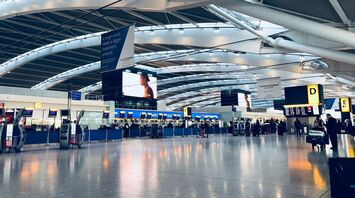Heathrow’s High Fees and Declining Service: Calls for Urgent Reform

Campaign to re-imagine Heathrow: Heathrow Reimagined: A Better Hub For Britain is an initiative by Heathrow Airline Operators’ Committee, Arora Group International Airlines Group and Virgin Atlantic. A call to the CAA (Civil Aviation Authority) to reconsider the regulation of Heathrow Airport in this film. The campaign says the current regime permits Heathrow to charge so much that it is the priciest airport on earth. Airlines and travelers are now paying around £1.1 billion a year more to travel to destinations than they would have had all fees been consistent with major European hubs. The absence of affordable investment, therefore makes it quite impossible for infrastructure to be reliable, services deteriorate and operations become costly by default where consumers are the ultimate end.
The push for regulatory reform comes as Heathrow’s expansion plans threaten to further increase passenger charges. Over the last two decades, Heathrow has received more than £15 billion in investment, yet its infrastructure and service levels have deteriorated. Industry reports indicate that the airport consistently ranks poorly in passenger satisfaction surveys, with travelers citing congestion, long wait times, and inefficiencies. Compared to international hubs such as Frankfurt, Madrid, and Singapore, Heathrow’s cost-to-quality ratio is increasingly unfavorable. The campaign underscores the need for transparent oversight to prevent further financial strain on travelers while ensuring that future investments improve overall efficiency and service levels.
The current model for travelers at Heathrow results in increased air fares and extra costs of airport-based services. The surge charges are nothing new and do not equate to improved service with badly maintained facilities along with terrible passenger service highlighted by complaints. The provision for reform during the campaign is predicated on seeking to deliver price caps that are not biased towards higher costs for some. If successful, that could lead to less punitive ticket prices for travelers at Heathrow and a better airport experience overall by clamping down on excessive fees for things like parking, security fast-track and even baggage handling.
Potential for new regulatory changes that could better define in-house passenger experience through improved airport operation and elimination of deep-rooted inefficiencies. This would mean the retooling of Heathrow's pricing model so that passenger investment in the expansion actually helps passengers rather than heaping new costs onto them. Also enhancements in infrastructure such as terminal modernisations and improved passenger services would make Heathrow more commercially appealing to other global leaders. Due to concerns over the coming years, best practice implementation from robustly managed global hubs should help to deliver easier and less stress for Heathrow travellers.
In conclusion, Heathrow Reimagined highlights the urgent need for regulatory reforms to curb rising costs and enhance service quality. For travelers, these changes could translate into lower fares, better facilities, and a more efficient travel experience. However, the success of these reforms will depend on the willingness of regulators and airport authorities to adopt a more balanced and passenger-focused approach.



















